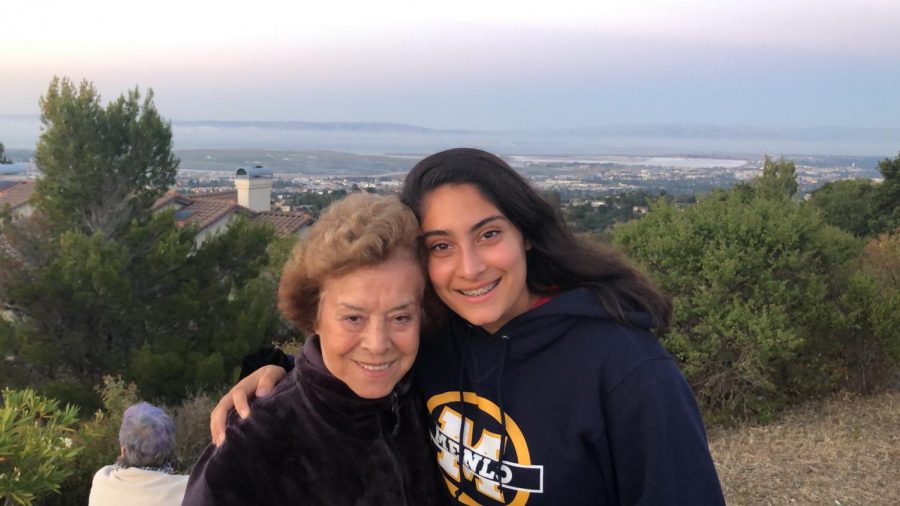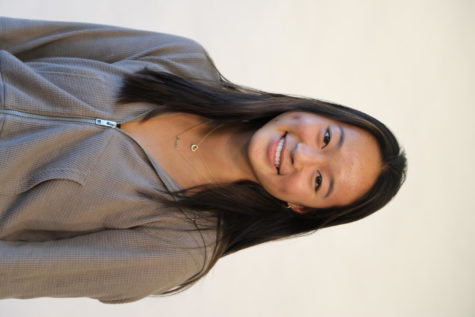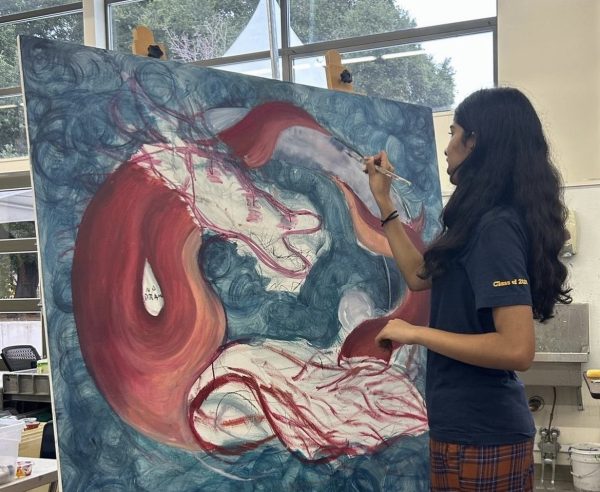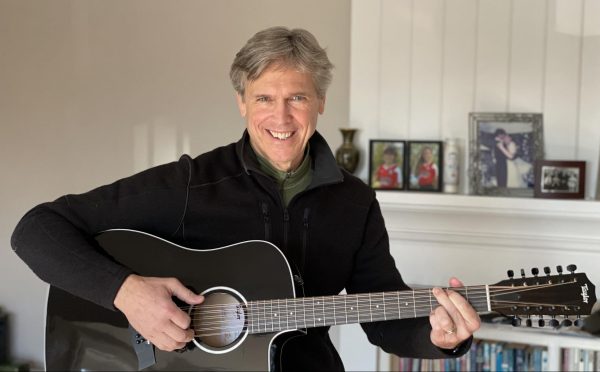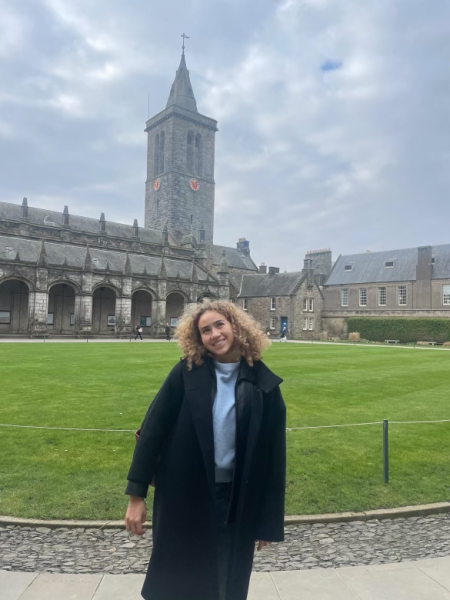COVID-19 Increases Isolation, But Older Adults Remain Optimistic
Junior Ayla Seddighnezhad and her grandmother, 82-year-old Maliheh Pirasteh, pose for a picture during a hike together. Photo courtesy of Ayla Seddighnezhad.
January 23, 2021
COVID-19 has affected different age groups in specific ways, and one of the most impacted groups is senior citizens (65 years and older). Senior citizens are not only more vulnerable to COVID-19, but they must also endure longer and stricter isolation periods, resulting in several emotional and social changes.
Seventy-eight percent of people who died from COVID-19 from May to August 2020 were senior citizens, according to the Centers for Disease Control and Prevention (CDC). Older adults, particularly senior citizens, are at a much higher risk for severe illnesses that require hospitalization, intensive care and ventilators. As of Jan. 23, 2021, 392,636 senior citizens have died from COVID-19.
To reduce the likelihood of contracting COVID-19, the CDC recommends limiting in-person interactions, avoiding crowds and carefully weighing any risks when deciding to go out. 82-year-old Maliheh Pirasteh, grandmother of junior Ayla Seddighnezhad, has been following these guidelines to stay safe. “I try as much as I can to stay indoors in my house where I know I’m safe, rather than going outside to malls, grocery stores, shopping centers or anywhere that has a risk of COVID-19,” Pirasteh said in an interview translated from Farci, her native language.
Pirasteh lives part-time (four days out of the week) with her daughter’s family, which includes Seddighnezhad. Since Pirasteh regularly sees the rest of her family, the Seddighnezad family must also remain extremely careful to avoid transmitting COVID-19 to Pirasteh. “[Paristeh] is a member of my family that I’m in direct contact with almost every day,” Seddighnezhad said. “Especially since San Mateo County is now in the purple tier, my whole family hasn’t gone anywhere that’s not essential.”
Despite having to follow COVID-19 restrictions strictly, the pandemic has also brought Seddighnezhad’s family closer together. “[Paristeh has] definitely gotten closer to us and the family because she’s here so much,” Seddighnezhad said. “We eat dinner together every night, and we’re together throughout the day, so we’ve bonded a lot.”
Other senior citizens, however, are unable to see their families, which makes the pandemic harder to endure. “I have a daughter that lives in Sacramento, and I can’t see her that often. So I think the hardest [part of the pandemic] is not being able to see my family,” Dean of Students Tony Lapolla said. Lapolla, who is 67, also has a 15-month-old grandchild whom he has only seen once in person.
A tracking survey conducted by the Kaiser Family Foundation (KFF) in July found that 46% of adults 65 and older said that COVID-19 had a negative impact on their mental health. Since senior citizens are at higher risk, they are often subject to longer periods of isolation and increased stress and anxiety, according to the KFF. Despite seeing her family often, Pirasteh still feels this emotional difference. “The mood is a bit dampened since I’m always in the house, and before [the pandemic] I got to see my friends or go outside for fresh air,” Pirasteh said. “There is a sense of isolation.”
Lapolla experienced a similar emotional change during the holidays when he was unable to see his family. “Not being able to go and do things that you have normally done over the holidays makes it feel as if you lost something,” Lapolla said.
Although Lapolla is at a higher risk for a severe illness, he is not worried because he follows CDC guidelines and trusts that his environment is as safe as possible. “I think Menlo has created a very safe environment and I come to school because I know it’s a safe place,” Lapolla said. “I feel good about being here and doing my work from there.”
Pirasteh is also not too worried about contracting COVID-19 since she has followed precautions to remain healthy. “We’re doing everything we can, so [there is] no reason to be worried.”


